Good News in History, September 7
Happy 94th Birthday to Walter Sonny Rollins was born. Widely recognized as one of the most important and influential jazz musicians, Rollins’ seven-decade career has seen 60 records released with him as band leader. A number of his compositions, including St. Thomas, Oleo, Doxy, and Airegin have become jazz standards. Rollins has been called “the greatest living improviser.” READ a bit about his life… (1930)
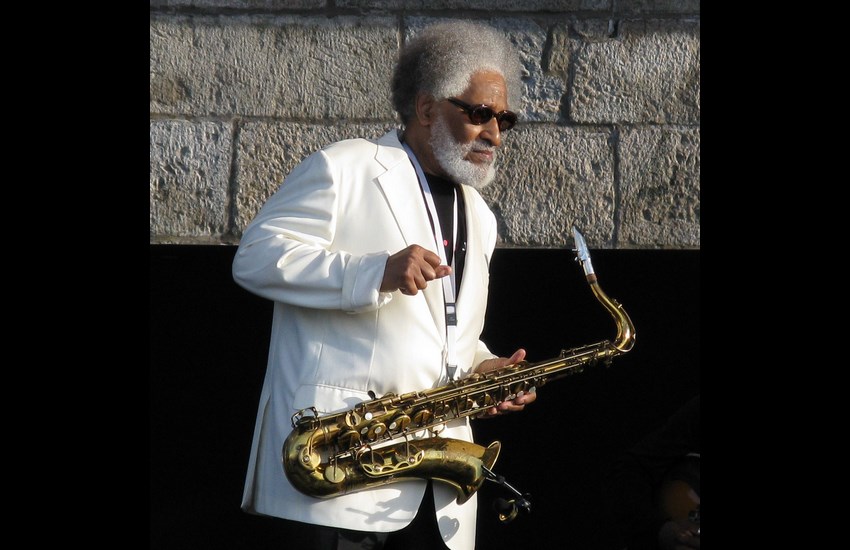
The youngest of three siblings, Walter Rollins grew up in central Harlem where he received his first alto saxophone at age 8. At 21, having already played professionally for a few years, he earned credits on records made by Miles Davis, Charlie Parker, and Thelonius Monk.
A breakthrough arrived in 1954 when he recorded his famous compositions Oleo, Airegin, and Doxy with a quintet led by Davis that also featured pianist Horace Silver, these recordings appearing on the album Bags’ Groove.
Throughout his career, he was awarded 9 honorary doctorates for music and one for the arts, as well as the Kennedy Center Honors, the Grammy Lifetime Achievement award, and the Miles Davis Award.
MORE Good News on this Date:
- Brazil gained its independence from Portugal and celebrates on this day (1822)
- TV pioneer Philo Farnsworth succeeded in transmitting an image electronically with his image dissector (video camera tube), and called it television—with 300 patents, he made many crucial contributions to the development of all-electronic television at his Farnsworth Television and Radio Corporation, in Fort Wayne, Indiana (1927)
- Happy 72nd Birthday to Chrissie Hynde, the singer-guitarist for The Pretenders (1951)
- The Pro Football Hall of Fame opened in Canton, Ohio (1963)
- Desmond Tutu became the first black leader of the South African Anglican Church (1986)
- Abdul Ahad Mohmand, the first Afghan in space, returned aboard a Soviet Soyuz spacecraft after 9 days on the Mir space station (1988)
101 years ago today, INTERPOL was founded. It’s the world’s largest international police cooperation organization, with member states counted at 195. It is headquartered in Lyon, France, with seven regional bureaus worldwide. Pursuant to its charter, INTERPOL seeks to remain politically neutral in fulfilling its mandate and is thus barred from interventions or activities that are political, military, religious, or racial in nature. Instead, it focuses on cybercrime, transnational crime syndicates, and trafficking.

Far from being the stepping stone to a one-world government policing agency, INTERPOL has a budget smaller than that of the New York City bureau of the NYPD. INTERPOL has no specific agents and has only recently begun to issue its own travel documents.
National police forces can rely on INTERPOL’s cooperation for violent crime, kidnapping, and other acts, but one of the most successful parts of INTERPOL’s crime-fighting history has been its seizures of plundered art and artifacts, illegally trafficked animals, animal parts, humans.
In May of this year, a major operation saw 11,049 stolen pieces of art and historical artifacts from Italy, Portugal, Spain, and the Russian Federation.
In 2018, INTERPOL’s Operation Thunderstorm conducted almost 2,000 seizures in 93 countries. 48 live primates, 14 big cats, 4,000 birds, 20,000 reptiles, 55,000 tons of lumber, 8 tons of pangolin scales, and 1.3 tons of elephant ivory were seized by authorities. (1923)
394 years ago today, Boston was founded in Massachusetts. First demarcated on the Shawmut Peninsula in 1630 by Puritan settlers from the English town of the same name, it was the scene of several key events of the American Revolution, such as the Boston Massacre, the Boston Tea Party, the Battle of Bunker Hill, and the siege of Boston. Upon American independence from Great Britain, the city continued to be an important port and manufacturing hub as well as a center for education and culture.

The 19th century was dominated by waves of immigrants that started with the Irish who settled predominantly in south Boston. Italians filled in the north, Russians, Jews, and Pollacks arrived in the west. Syrians, Lebanese, Chinese, and French Canadians could all be found there as the city tripled in size and population over the course of the century.
Entering the 20th, many important buildings were raised, such as Horticultural Hall on Huntington Avenue in 1901, Jordan Hall in 1903, and Longfellow Bridge in 1906. Fenway Park, home of the Boston Red Sox, opened in 1912. Logan International Airport opened on September 8, 1923. The Boston Bruins were founded in 1924 and played their first game at Boston Garden in November 1928.
Boston’s many firsts include the United States’ first public park (Boston Common, 1634), first public or state school (Boston Latin School, 1635) first subway system (Tremont Street subway, 1897), and first large public library (Boston Public Library, 1848).
Today, Boston is a thriving center of scientific research. The Boston area’s many colleges and universities, notably Harvard and MIT, make it a world leader in higher education, including law, medicine, engineering and business, and the city is considered to be a global pioneer in innovation and entrepreneurship, with nearly 5,000 startups. Households in the city claim the highest average rate of philanthropy in the United States. (1630)
88 years ago today, Buddy Holly was born into poverty in a musical family in Lubbock, Texas. In just 18 months, from his first #1 hit song, That’ll Be The Day, to when he died in a tragic plane crash at age 22, the prolific singer-songwriter topped the charts with more than a dozen Top 40 hits worldwide.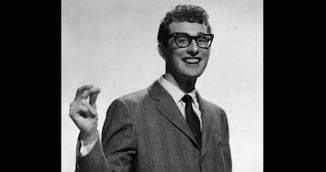
Unlike his hero, Elvis Presley, Holly was an innovator for writing his own material and experimenting with double tracking and orchestration. He also pioneered and popularized the now-standard use of two guitars, bass, and drums by rock bands.
His influence was felt in Britain where he became the major musical influence for The Beatles and Rolling Stones. Teenagers John Lennon and Paul McCartney saw Holly for the first time on English television in 1958, and began studying Holly’s records—like Peggy Sue, Everyday, and Not Fade Away—and learned his performance style and lyricism. They even took their insect-inspired band name from Holly’s band, The Crickets (and McCartney later bought the publishing rights to Holly’s song catalogue).
Don McLean’s popular 1971 ballad American Pie and its lyric, The Day the Music Died, was inspired by Holly’s death and the day of the plane crash.
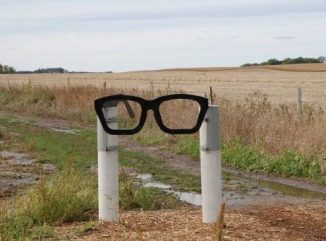
Holly chartered a four-seat airplane in Mason City, Iowa, for himself and his band because their tour bus had no heat and kept breaking down in the frigid Midwest winter. The plane crashed in inclement weather and Holly was killed on February 3, 1959.
One of the Everly Brothers advised Holly to replace his old-fashioned glasses with a trending horn-rimmed model. When the plane crashed, the wreckage was strewn across the snow-covered ground and while his other belongings were recovered immediately, there was no record of his signature glasses being found. They were presumed lost until, in March 1980, they were discovered misplaced in a county courthouse storage area. They had been found after the snow had melted the following spring, and were returned to Holly’s widow a year later. (1936)
And, on this day in 1915, Illinois cartoonist and illustrator Johnny Gruelle patented his Raggedy Ann doll.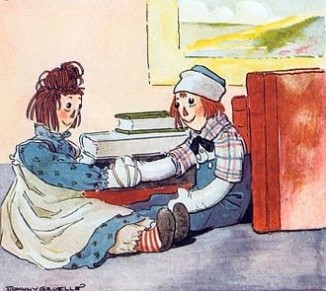
He had originally drawn a face for his daughter on a dusty, faceless rag doll she found in the attic. He named the doll Raggedy Ann, and Marcella played with her so much, that he figured other children would like one too. Three years later he published Raggedy Ann Stories and later created a series of popular books and dolls, adding Raggedy Andy as a playmate.
And, 54 years ago today, Willie Shoemaker broke the record for most professional wins by a horse jockey, with 6,033 victories (a record he would hold for three decades). He was so small at birth that he was not expected to survive the night, but his size proved an asset in the sport of thoroughbred racing—and he became a giant, winning 11 Triple Crown races. (1970)
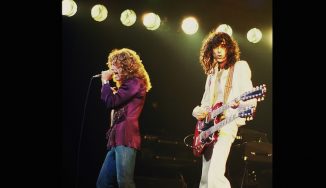
And, on this day in 1968, the members of Led Zeppelin—Jimmy Page, Robert Plant, John Paul Jones and John Bonham—made their live debut in the outskirts of Copenhagen for 1,200 youngsters at the Egegard School. Afterward, a local review stated: “Their performance and their music were absolutely flawless.” They became one of the most innovative, influential, and successful rock bands in history, selling 200-300 million LPs sold worldwide. The band’s fourth album, with the song “Stairway to Heaven“, is among the most popular and influential works in rock music. Every one of their 9 studio albums reached Billboard’s top 10, and six hit #1. WATCH a short bio video…
And, 55 years ago today, the first episode of Monty Python’s Flying Circus was recorded for BBC television. The wildly popular cult comedy series ran for four seasons in the UK and is famous for sketches such as, Dead Parrot, Spam, The Spanish Inquisition, Ministry of Silly Walks, and Lumberjack Song.
The six troupe members were highly educated: the founders, Eric Idle, John Cleese and Graham Chapman attended Cambridge University; Terry Jones and Michael Palin are Oxford graduates; and American-born member Terry Gilliam graduated from Occidental. Their comedy is often pointedly intellectual, with numerous erudite references to literary figures and philosophers—like the football match between famous philosophers from Greece and Germany.
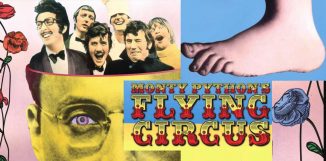
Five years after it debuted in the UK, the Dallas PBS station KERA became the first U.S. TV station to broadcast episodes of the Flying Circus, and is often credited with introducing to American audiences the grab bag of animation and skits that always included the phrase “And, now, for something completely different”.
The ‘Pythons’ have reunited for several live stage performances over the years, which are on DVD—including a farewell show in London in 2014, running for ten nights—and several of the members went on to star in Hollywood films like A Fish Called Wanda (with Cleese and Palin) and Terry Gilliam became a director of films like Time Bandits, Brazil, and The Fisher King, co-starring Robin Williams and Jeff Bridges. WATCH a sketch… (1969)
SHARE the Milestones, Memories, and Music…
>read more at © GoodNews
Views: 3